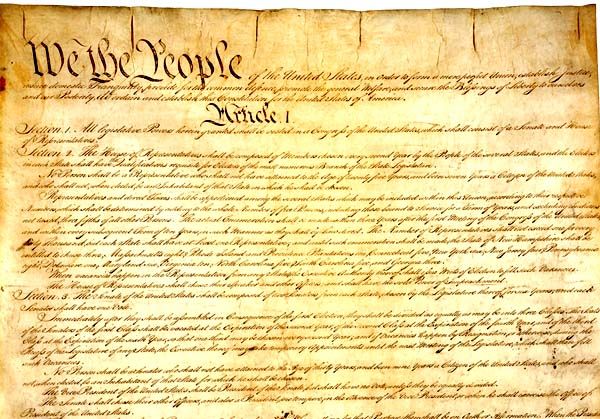Let us put aside for the moment that not only did most of you not have any qualms about such surveillance during the Bush Administration. Let us also put aside that during those years you not only lacked any qualms, but also supported it and questioned anyone that disagreed with you over it. Let us assume, for purposes of argument, that this is genuine concern rooted in privacy issues and not rooted in politics.
President Obama has made clear that members of Congress have been briefed on this issue. Therefore, if you are truly concerned, and you truly believe that the public had a right to know what was happening, there is a simple solution that was available to you the moment you found out. What is that solution?
Read everything you know about the surveillance programs into the Congressional Record.
This could be done through an actual speech on the floor of the House or the Senate. This could be done through a speech in committee. This could be done by moving to insert the full text of what you have into the Congressional Record. There are all sorts of ways to do this and with its insertion it would enter the public domain.
Now you’re probably thinking that you could get in serious amounts of trouble, and go to prison for a long time, for what is effectively leaking highly classified information. You couldn’t be more wrong. See, that Constitution you claim to hold so dear, and you claim you know pretty much inside and out, protects you pretty much absolutely if you had chosen to go this route. I direct your attention to Article I, Section 6, Clause 1:
Senators and Representatives… for any speech or debate in either House, they shall not be questioned in any other place.
This is a grant of congressional immunity for your speeches in Congress and your insertions into the Congressional Record. In fact, this is how Sen. Mike Gravel (D-Alaska) helped ensure that the Pentagon Papers would enter the public domain. A subsequent case held that this protection also extends to congressional aides for conduct for which a representative or senator would be immune from prosecution.
So, there you have it Republicans. If you were so concerned about this matter, and you truly believed that the public had the right to know, rather than just as part of an attempt to create a scandal, there was a way open for you to raise your concerns and inform the public. This way was created in the Constitution and is now nearly 226 years old. Furthermore, it has been used before. With all the constitutional scholars you claim to have, I’m surprised you never thought of this before.


